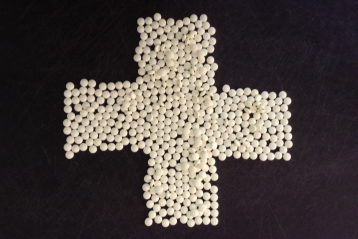Aspirin is associated with a 22 to 39 percent reduction in colon and other digestive tract cancers.*
They will face thousands of dollars of bills and many will deplete a lifetime of savings.
Jesse Slome, director of the American Association of Critical Illness Insurance
Aspirin and cancer risk can be reduced
A new study finds a link between taking aspirin and cancer risk. Taking an aspirin may reduce the risk of colon cancer and other digestive tract cancers. There is an increased risk of bleeding according to the experts. Taking aspirin is not for everyone the medical professionals note.
Researchers in Italy reviewed 113 different studies out of a total of over 1,500 reports. All the reports appeared before September 2011. The studies focus on colon and stomach cancer. Additionally the researchers reviewed studies of pancreatic cancer cancers of the head, neck, esophagus, liver, gallbladder, and bile ducts.
The scientists found that a daily aspirin dose of between 75 and 100 milligrams reduced the risk of colon cancer by 10 percent. A 325 mg per day dose reduced the risk by 35 percent. High-dose aspirin (500 mg/day) reduced risk by 50% though there was caution here. The benefits increased the longer people took the aspirin dosage according to the study.
Aspirin reduced the risk of cancers of the esophagus and stomach by between 35 and 40 percent.
Some have changed recommendation regarding aspirin
Reviewers of the work noted that consumers should take note. Some medical professionals have changed their opinion and recommendations that daily aspirin can help prevent heart attacks and stroke in people with a higher risk for those cardiovascular issues.
They point to research that found that while aspirin did provide a reduction in heart disease risk, more people suffered bleeding complications. Specifically impacted is the gastrointestinal tract.
Most people diagnosed with cancer today survive
“Over one million men and women will get cancer this year. Most will survive but will need to miss days at work for treatment and recovery,” shares Jesse Slome director of the American Association for Critical Illness Insurance. “They will face thousands of dollars of bills and many will deplete a lifetime of savings.“
Slome advises that more consumers consider a modest cancer only insurance policy. “Look for one that provides $10,000 to $25,000 immediately following a qualifying cancer diagnosis. Costs for someone in their 40s can cost as little as $10 a month,” Slome notes. The Association provides an instant Cancer Insurance Cost Calculator on their website.
Tips for cancer and critical illness insurance planning
First of all, the Association recommends all men and women over 40 read more about what is critical illness insurance?
Secondly, the Association’s instant critical illness insurance cost calculator provides an instant estimate of costs for cancer-only insurance coverage.
Thirdly, cancer is only one risk that requires planning.
Fourthly, read tips to better compare critical illness insurance coverage. Significantly there are differences between policies.
* Annals of Oncology, Volume 31, Issue 5
Equally important, here are additional tips for consumers.
Firstly, learn more about long-term care insurance if you are between 50 and 60. Visit the American Association for Long-Term Care Insurance website for information.
Secondly, adults turning 65 can find Local Medicare Agents using the American Association for Medicare Supplement Insurance‘s free online lookup.
Thirdly, learn about stroke signs and symptoms.
Fourthly, learn more about cancer risks.
Finally, try to live a more healthy lifestyle. Undeniably it’s the most important thing you can do.

